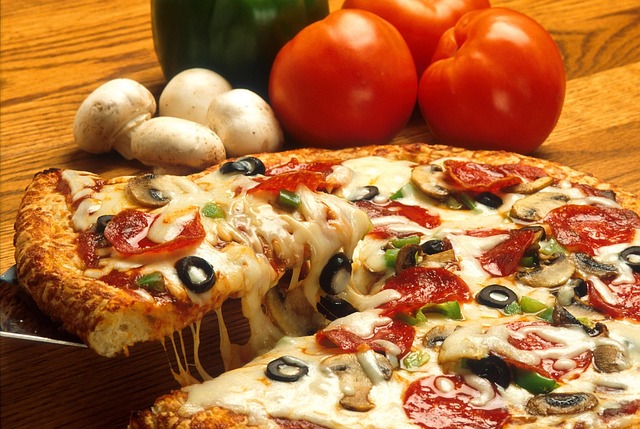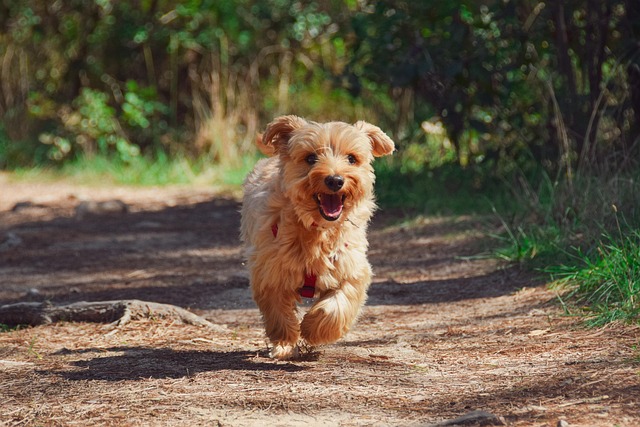
Pizza, a popular and easy comfort food for us does not hold the same appeal when it comes to canine health. While it might be tempting to share a slice with our dogs, leading many to ask “can dogs eat pizza?”, doing so can lead to a variety of health problems for them. This article delves into the reasons why pizza is unsuitable for dogs, highlighting the potential risks.
Table of Contents
Why Is Pizza Bad for Dogs?
- Harmful Ingredients and Toppings:
- Onions and Garlic: Common pizza toppings like onions and garlic are toxic to dogs. Even in small amounts these ingredients can cause health issues.
- High Fat Content: The high fat content in cheese and processed meats such as pepperoni can be difficult for dogs to digest which could possibly lead to pancreatitis.
- Salt and Spices: Pizzas are often high in sodium and spices which can be harmful to dogs.
- Dough and Yeast Risks:
- Uncooked pizza dough contains yeast, which can expand in a dog’s stomach, causing bloating and severe discomfort. This condition is life-threatening and requires immediate veterinary attention. Yeast fermentation in the dough produces alcohol, which could lead to alcohol poisoning in dogs.
- Lactose Intolerance:
- Many dogs are lactose intolerant. If lactose-intolerant dogs consume pizza it can lead to gastrointestinal upset.
- Risk of Obesity and Health Issues:
- Given that it’s high in calories, feeding pizza to dogs can contribute to weight gain and obesity. Overweight dogs have an increased risk for a plethora of health problems.
- Additives and Preservatives:
- Many pizzas contain artificial additives and preservatives, which can be harmful to dogs. These chemicals can cause allergic reactions and other health issues in some dogs.
How Much Pizza Can a Dog Eat Before Getting Sick?
Ideally, your dog should eat no pizza at all. It is hard to tell how much will get them sick because it depends on the type of pizza, the ingredients, and the individual dog’s tolerance levels and health condition. Factors such as size, breed, existing health conditions, and individual sensitivities play significant roles in how a dog might react to consuming pizza. Even a small slice of pizza can cause issues in some dogs, especially if it contains toxic ingredients like onion, garlic, or high levels of salt and fat.
In general, it’s best to avoid giving dogs pizza entirely. The risks associated with the ingredients commonly found in pizza make it a dangerous option for dogs. If a dog accidentally ingests pizza, monitoring for signs of distress such as vomiting, diarrhea, lethargy, or abnormal behavior is crucial, and contacting a veterinarian is recommended to ensure their health and safety.

What if a Dog Already Ate Pizza?
In general, if your dog has eaten even a small amount of pizza, immediately contact a veterinarian so they can assess the situation and advise you how to proceed. The toxic amount may vary between dogs and is dependent on many factors, so the vet will have to provide you with a professional diagnosis. The ingredients on most pizzas can be toxic to dogs and so quick action is crucial.
In sum, while sharing food with our canine companion can be a bonding experience, it’s crucial to be mindful of their dietary needs. Pizza, with its potentially harmful ingredients and high-calorie content, is a food that should be kept off the menu for dogs. Instead, opt for healthy, dog-friendly treats that cater to their nutritional needs without posing any risks. Always consult with a veterinarian before introducing new foods into your dog’s diet to be cautious and ensure they remain healthy and happy.
FAQ
Can Dogs Eat Pizza Crust?
It is not recommended for dogs to eat pizza crust. While it may not be as dangerous as a whole pizza slice, there can still be traces of the toxic ingredients on there. Additionally, it doesn’t provide your dog with any kind of nutritional value and is essentially empty calories, so there’s no need to offer crust to your furry friend. Instead, pick a dog-friendly snack that is made specifically for canine diets.
Can Dogs Eat Pizza Rolls?
Pizza rolls contain many of the same ingredients that regular pizza does, thus they are also not safe for dogs. Pizza rolls may contain toxic ingredients like onion and garlic, and the outer crust can be hard for dogs to digest. It’s best to not feed your dog foods like pizza rolls, pizza pops, pizza pockets, or any other pizza related products, as they could harm your pet. Stick to treats that are made specifically for dogs to avoid health problems.
Can Dogs Eat Pizza Dough?
Dogs should not eat pizza dough. Raw pizza dough contains yeast, which can be extremely dangerous for dogs. When ingested, the dough can expand in the dog’s stomach, bloating them and possibly leading to life-threatening conditions. Furthermore, as the yeast ferments, it produces alcohol, which can lead to alcohol poisoning in dogs. Both situations are emergencies that require immediate veterinary attention. Thus, it’s best to keep raw dough and other yeast products well out of reach of dogs.
Can Dogs Eat Pizza Sauce?
Pizza sauce is more often than not filled with harmful ingredients for dogs, like garlic and onion, salt, olive oil, and more ingredients that can irritate your pup. Giving your dog tomato sauce used for pizza, despite it being full of tomatoes and other vegetables, can be dangerous depending on the amount of additives and toxic ingredients inside of it. It’s best to avoid giving your dog pizza sauce and to keep it out of their reach.


